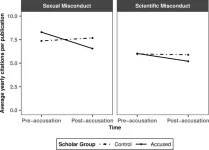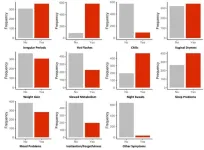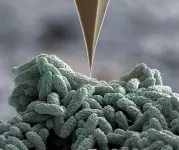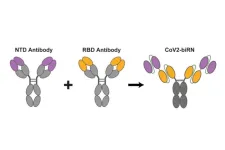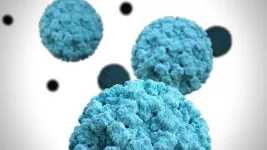(Press-News.org) In a new analysis, scholars publicly accused of sexual misconduct experienced a significant decrease in the rate at which other scholars cited their published research. Giulia Maimone of the University of California, Los Angeles, U.S., and colleagues present these findings in the open-access journal PLOS One on March 5, 2025.
In academia, scholars cite other scholars’ publications as a widely agreed-upon way to reference existing research and promote scientific advancement. A scholar with a high number of citations may be considered particularly impactful in their field. Prior research suggests that the decision to cite a given publication can be influenced by more than just its quality and relevance; for example, scholars may be more likely to cite their friends’ research.
However, whether scholars might also avoid citing the work of their peers accused of immoral behavior has been unclear. To examine this possibility, Maimone and colleagues compared citation rates for scholars accused of sexual misconduct to those for scholars accused of scientific misconduct (for instance, data fabrication or plagiarism) and to rates for scholars without any accusations. The dataset included 31,941 publications for 172 scholars across 18 disciplines.
Statistical analysis of the data showed that, during the first three years after public accusation, scholars accused of sexual misconduct had their work cited significantly less, while scholars accused of scientific misconduct did not experience a significant citation decrease. These findings suggest that sexual misconduct is a key factor unrelated to the merit of research that may nonetheless influence citation rates.
Maimone and colleagues also surveyed 240 academic scholars and 231 non-academics on their attitudes about citing works of accused scholars. The non-academics reported greater aversion to sexual than scientific misconduct. However, the scholars said they would be more likely to cite scholars accused of sexual than scientific misconduct – which runs contrary to the citation rate findings.
Future research could address some of this study’s limitations, such as by including a larger number of accused scholars and examining a longer period of time post-accusation. Nonetheless, the researchers note, this study could help raise awareness of potential bias and help scholars make more informed citation decisions.
The authors add: “Anecdotally, we saw some consumers boycotting the music of recording artists accused of sexual misconduct. We realized that while in some contexts it might make sense to penalize the work of individuals accused of immoral behavior, in others, such as science, the issue is not as straightforward. This is the first paper to systematically compare the ramifications of sexual and scientific misconduct on the citations of alleged perpetrators.”
In your coverage, please use this URL to provide access to the freely available article in PLOS One: https://plos.io/41pbV0c
Citation: Maimone G, Appel G, McKenzie CRM, Gneezy A (2025) Citation penalties following sexual versus scientific misconduct allegations. PLoS ONE 20(3): e0317736. https://doi.org/10.1371/journal.pone.0317736
Author countries: U.S.
Funding: National Science Foundation grant (SES-2049935) to C.R.M.M. The funder had no role in study design, data collection and analysis, decision to publish, or preparation of the manuscript.
END
After sexual misconduct accusations, scholars’ work is cited less
2025-03-05
ELSE PRESS RELEASES FROM THIS DATE:
Menopause symptoms associated with future memory and neuropsychiatric problems
2025-03-05
Women who exhibit more menopausal symptoms are more likely to later have poorer cognitive function and mild behavioral impairments – both markers of dementia. That is the conclusion of a study of 896 postmenopausal females published March 5, 2025, in the open-access journal PLOS One by Zahinoor Ismail of University of Calgary, Canada, and colleagues.
Females are known to have a three-fold greater risk of developing Alzheimer’s disease and related dementias, and will be disproportionately ...
Findings may advance understanding of infertility in mothers
2025-03-05
Oxytocin, a hormone already known for its role in childbirth, milk release, and mother-infant bonding, may have a newfound purpose in mammalian reproduction. In times of maternal stress, the hormone can delay an embryo’s development for days to weeks after conception, a new study in rodents shows. According to the authors, the findings about so-called “diapause” may offer new insights into pregnancy and fertility issues faced by humans.
Led by researchers at NYU Langone Health, the study explored diapause, in which an embryo temporarily stops growing early in ...
Engineered cartilage from nasal septum cells helps treat complex knee injuries
2025-03-05
Injuries to the articular cartilage in different joints, including the knee, are painful and limit mobility. Therefore, researchers at the University of Basel and University Hospital Basel are developing cartilage implants using cells from the patient’s nasal septum. A recent study shows that giving these cartilage implants more time to mature significantly improved clinical efficacy, even in patients with complex cartilage injuries. This suggests that the method could also be suitable for the treatment of degenerated cartilage in osteoarthritis.
An unlucky fall while skiing or playing ...
Damaged but not defeated: Bacteria use nano-spearguns to retaliate against attacks
2025-03-05
Some bacteria deploy tiny spearguns to retaliate against rival attacks. Researchers at the University of Basel mimicked attacks by poking bacteria with an ultra-sharp tip. Using this approach, they have uncovered that bacteria assemble their nanoweapons in response to cell envelope damage and rapidly strike back with high precision.
In the world of microbes, peaceful coexistence goes hand in hand with fierce competition for nutrients and space. Certain bacteria outcompete rivals and fend off attackers by injecting them with a lethal cocktail using tiny, ...
Among older women, hormone therapy linked to tau accumulation, a hallmark of Alzheimer’s disease
2025-03-05
A new study from Mass General Brigham researchers has found faster accumulation of tau—a key indicator of Alzheimer’s disease—in the brains of women over the age of 70 who took menopausal hormone therapy (HT) more than a decade before. Results, which are published in Science Advances, could help inform discussions between patients and clinicians about Alzheimer’s disease risk and HT treatment.
While the researchers did not see a significant difference in amyloid beta accumulation, they did find a significant difference in how fast regional tau accumulated in the brains of women over the age of 70, with women who had taken HT showing faster tau accumulation ...
Scientists catch water molecules flipping before splitting
2025-03-05
For the first time, Northwestern University scientists have watched water molecules in real-time as they prepared to give up electrons to form oxygen.
In the crucial moment before producing oxygen, the water molecules performed an unexpected trick: They flipped.
Because these acrobatics are energy intensive, the observations help explain why water splitting uses more energy than theoretical calculations suggest. The findings also could lead to new insights into increasing the efficiency of water splitting, a process that holds promise for generating clean hydrogen fuel and for producing breathable oxygen during future missions to Mars.
The study will be published Wednesday (March 5) ...
New antibodies show potential to defeat all SARS-CoV-2 variants
2025-03-05
The virus that causes COVID-19 has been very good at mutating to keep infecting people – so good that most antibody treatments developed during the pandemic are no longer effective. Now a team led by Stanford University researchers may have found a way to pin down the constantly evolving virus and develop longer-lasting treatments.
The researchers discovered a method to use two antibodies, one to serve as a type of anchor by attaching to an area of the virus that does not change very much and another to inhibit the virus’s ability ...
Mental health may be linked to how confident we are of our decisions
2025-03-05
A new study finds that a lower confidence in one’s judgement of decisions based on memory or perception is more likely to be apparent in individuals with anxiety and depression symptoms, whilst a higher confidence is more likely to be associated compulsivity, thus shedding light on the intricate link between cognition and mental health manifestations.
####
Article Title: Metacognitive biases in anxiety-depression and compulsivity extend across perception and memory
Author Countries: Germany, United Kingdom
Funding: TXFS is a Sir Henry Wellcome Postdoctoral Fellow (224051/Z/21/Z) based at the Max Planck UCL Centre for Computational Psychiatry ...
Research identifies key antibodies for development of broadly protective norovirus vaccine
2025-03-05
Scientists at The University of Texas at Austin, in collaboration with researchers from the University of North Carolina at Chapel Hill and the National Institutes of Health, have discovered a strategy to fight back against norovirus, a leading cause of gastroenteritis worldwide. Their new study, published in Science Translational Medicine, identifies powerful antibodies capable of neutralizing a wide range of norovirus strains. The finding could lead to the design of broadly effective norovirus vaccine, as well as the development of new therapeutic antibodies for the treatment of norovirus-associated gastroenteritis.
Norovirus ...
NHS urged to offer single pill to all over-50s to prevent heart attacks and strokes
2025-03-05
The NHS could prevent thousands more heart attacks and strokes every year by offering everyone in the UK aged 50 and over a single “polypill” combining a statin and three blood pressure lowering drugs, according to academics from UCL.
In an opinion piece for The BMJ, the authors argued that a polypill programme could be a “flagship strategy” in Labour’s commitment to preventing disease rather than treating sickness. The programme would use age alone to assess eligibility, focusing on disease prevention rather than disease prediction.
They said such a strategy should replace the NHS Health Check, a five-yearly assessment ...
